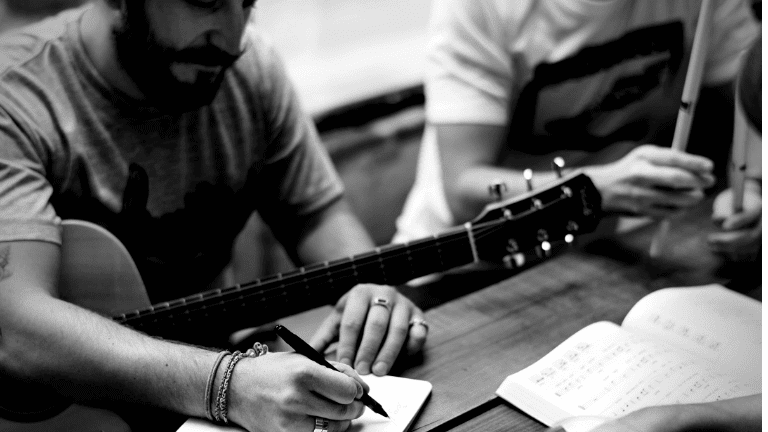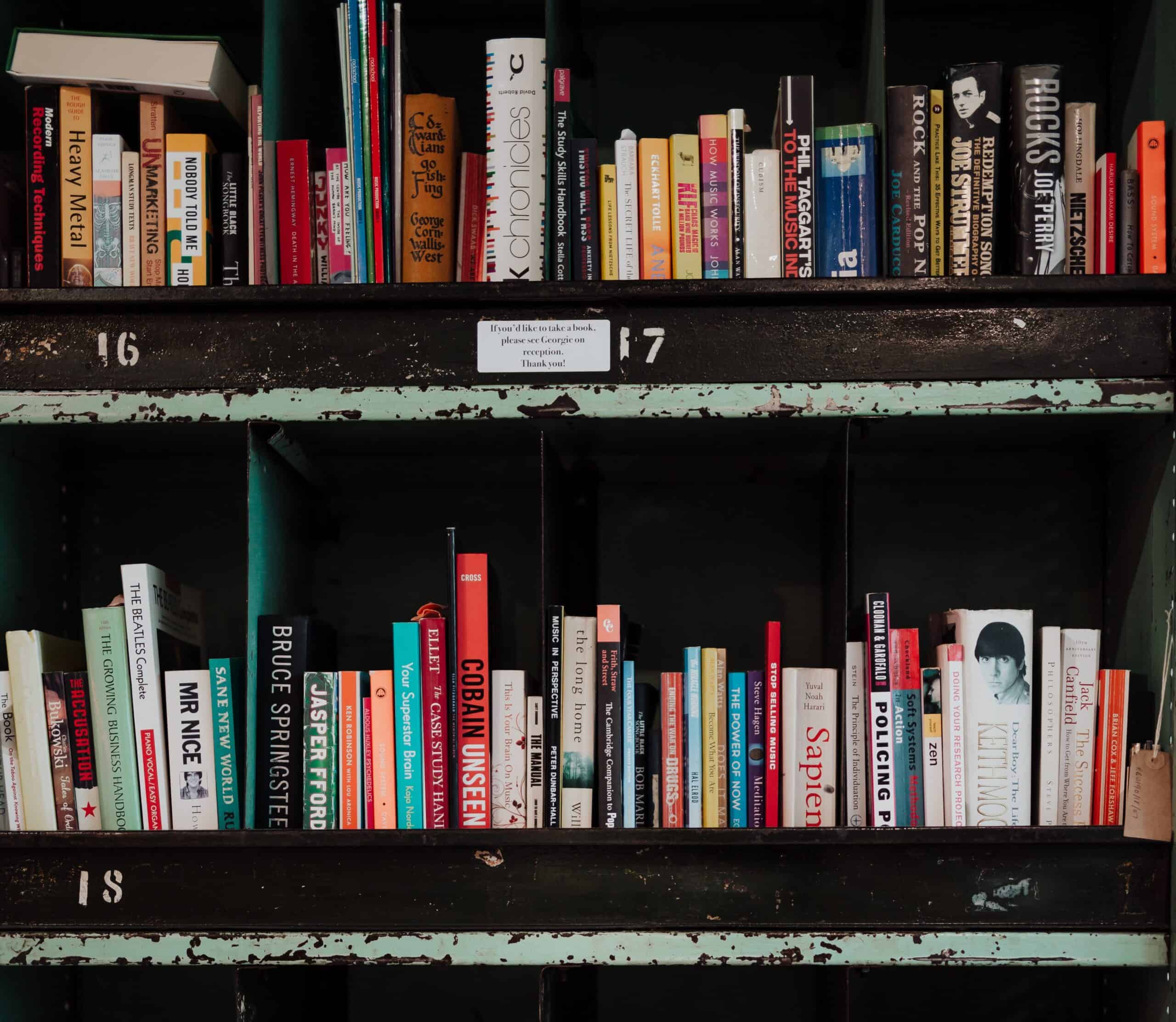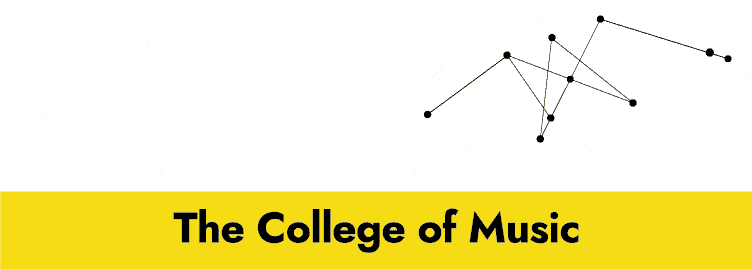JOIN US SEPTEMBER 2024 - APPLY TODAY OR BOOK YOUR PLACE ON ONE OF OUR OPEN DAYS IN BRIGHTON OR SHEFFIELD
JOIN US SEPTEMBER 2024 - APPLY TODAY OR BOOK YOUR PLACE ON ONE OF OUR OPEN DAYS IN BRIGHTON OR SHEFFIELD

Publishing is a subject close to my heart as my first publishing deal directly resulted in me buying my home. It can be incredibly lucrative. It’s important that we, as artists, understand what a publishing deal is, and how it benefits our career.
I’m convinced that a lot of artists sign publishing deals without really understanding what it is that they are signing. We need to get the basics down, so lets recap on the history. The sale of sheet music predates the sales of physical records. That means the publishing industry is older than the recorded music industry, and that's why a record company is still a separate entity to a publisher.
However, things can get a little bit blurry with the “360 deal” whereby a company will represent an artist in all aspects. For instance, label services may include publishing, but it is still helpful to think of the disciplines as separate. To make it completely clear, we can still split recorded music and songwriting into two distinct categories, the rights for the song live with the publishers, whereas recorded music rights live with the labels.
Currently, it might be that you are publishing your songs through a self-owned label or personal artistic brand, however, sooner or later you may do deals. You may even sign with a holistic a music industry company that offers to publish alongside managing your recorded rights, however, in your mind, these royalties need to remain split as they are collected and distributed in different ways.
When you write a song, assuming you haven’t stolen it from anywhere and it’s your own work, then the ownership of that song lives with you. A lot of bands get hung up about songwriting splits and this is probably a subject for another video. For now, I’m going to assume that you own 100% of the song, everything from the top-line, the lyrics and the backing track.
So, what are we going to do with it? Well, you have a few options, you can publish it yourself, you can do an admin deal or you can do a co-publishing deal. It’s through one of these three structures you will collect royalties, and for your clarity, the royalties are broken down into three different types.
These are paid on the manufacture, distribution, and sale of physical formats, such as CDs and Vinyl. A percentage of the overall sale goes to the writer.
Paid to the writer, with the logic that although the writer may not be there on the night of the performance, it is fair to remunerate them for their work. It’s the venue that pays the performance royalties.
This is for when your material appears on TVs, adverts or films and the like.
If you currently do not have a publishing deal and you are self-releasing, then, whether you know it or not, you are your own publisher. To collect your royalties, you can sign up to PRS who will collect your performance royalties and mechanicals. You can sign up for PRS for music by following this link www.prsformusic.com/join. It does not cost too much and it’s a great investment for your career.
You may be wondering, if it’s so easy to do this then why do I need a publishing deal? To answer this let’s think logistically. If you are releasing music in a multitude of territories it can be tough to collect all of the associated royalties. Having a publisher on board who has offices in the States, Europe, or wherever it may be to collecting these for you will be incredibly helpful.
You may consider the halfway house, which is an admin deal, you typically pay 10-15% for the publisher to collect royalties on your behalf. It’s of benefit as they will act professionally and collect royalties from other territories. However, they will not push to maximise the commercial potential of your songs, if you want that and you want the publisher to champion your act, get you some syncs, an advert, or even push the record company to support your band, then you need a co-publishing deal.
Typically in this deal, 75% of the publishing rights are retained by the writer, whereas 25% are awarded to the publishing company and they give you an advance. The advance is an interesting topic, it’s against your future earnings, so you will not get paid anything until that advance is recouped. It is just a loan to you against future earnings, an advance can be anything from a few grand to six figures plus, it can be really useful to keep the band moving in the leaner times and it’s a great investment in your future.
Additionally, that means the publishing company has a vested interest in maximising your revenue as, if you don’t earn any money than a publisher will not recoup. So, how does a publisher do that? One thing that is overlooked is the revenue benefits of organising co-writes with people that have a track record, this can turbocharge your career. There are other obvious quick wins like placing your songs in adverts, films or computer games.
You need to be really clear about this, if you take that money, you are not going to receive a penny more until that loan is paid back. Now, there is a difference between an advance with your publisher and an advance with your record label. Due to the costs associated with a record deal, a publishing deal tends to recoup faster than the record deal. This means you may be in a cycle of permanent debt in both a major and indie label deal. However, you could be recouping on your publishing fairly quickly, one advert or placement in a film may become a good earner and you will be in the green.
In my career, the critical first hit was engineered by our publishing company who organised co-writes. Without that happening in the early nineties, I wouldn’t be here talking about this stuff now. I hope you can see the power the right publisher at the optimum time has for your project.
It’s important to understand the normal sequence of events, although it’s not impossible for a publisher to come in early days, take an A&R role and see the potential in a band, and sign them, the set up is very atypical. Usually, its the last thing in the chain, publishers will want something there for them to collect. It’s down to you to prove the concept!
You need a growing and significant audience, some radio action, management, an agent and a buzz around a band, it is normally at this point that a publisher gets involved. I’m sorry if this seems like bad news, as I know we are always looking for a quick fix, unfortunately, publishing is not one of those. It’s most definitely something to be aware of, publish yourself, and put it in your own structure. The timing for signing with the right publisher is going to be one or two years down the line when the act is hot and happening. However, the good news is that when it comes to it, you are in a position to not only maximise your advance but to improve the terms of the publishing deal. A publishing deal is normally a 75/25 split however it can be as low 90/10 in favour of an established artist.
So, what happens if you are a songwriter but not a performing artist? You’ll be pleased to know that there are a lot of people in that position who become professional songwriters. The usual route is that they write songs with artists that go on to be successful and score a publishing deal off the back of this work.
This strategy is great, as you could easily work with hundred’s artists and maximises your chance of success, it only takes one hit for your career exponentially grow. That being said, if you are serious about writing, there has been a cultural shift in the last fifteen years and its essential that your music production skills are superb. You need to deliver finished records, not demo’s!! People don’t have the imagination to say “I can hear it’s a great song and will be huge with production.” It needs to be finished and ready to go. You have to get solid at music production!

- ‘Water bear’ is the common name for a Tardigrade.
- Tardigrades are micro creatures, found everywhere on earth.
- They are the most resilient creatures known.
- They can survive and adapt to their surroundings, even in outer space.
- Their resilience and ability to adapt and survive inspires us in everything we do. We love them.


WaterBear Education Ltd, Hanover House,
118 Queens Road, Brighton BN1 3XG, UK Map
Email: [email protected]
Tel: +44 (0) 1273 726230
WaterBear Sheffield, Unit 4, Gatecrasher,
49 Eyre Lane, Sheffield S1 4RB, UK
Email: [email protected]
Tel: +44 (0) 1143 992720

WaterBear Education Ltd, Hanover House,
118 Queens Road, Brighton BN1 3XG, UK Map
Email: [email protected]
Tel: +44 (0) 1273 726230
WaterBear Sheffield, Unit 4, Gatecrasher,
49 Eyre Lane, Sheffield S1 4RB, UK
Email: [email protected]
Tel: +44 (0) 1143 992720
- ‘Water bear’ is the common name for a Tardigrade.
- Tardigrades are micro creatures, found everywhere on earth.
- They are the most resilient creatures known.
- They can survive and adapt to their surroundings, even in outer space.
- Their resilience and ability to adapt and survive inspires us in everything we do. We love them.
